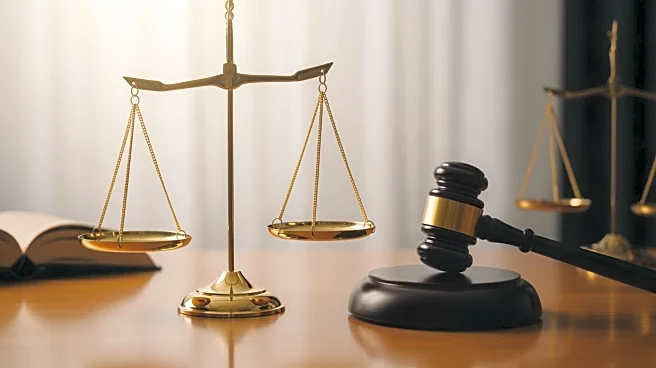What's Happening?
The Bolivian Supreme Court of Justice has annulled the 10-year prison sentence against former interim President Jeanine Áñez, ordering her immediate release. Áñez, who has been imprisoned for over four years, was convicted for her role in assuming the presidency
during a controversial National Assembly session following the 2019 protests that led to the resignation of then-president Evo Morales. The court's decision was based on findings of 'violations' of due process during Áñez's trial, as explained by Court President Romer Saucedo. The ruling was supported by seven of the nine justices, and it mandates that Áñez be subjected to a political trial, as demanded by her defense.
Why It's Important?
This decision by the Bolivian Supreme Court is significant as it addresses concerns about due process and the legal proceedings against Jeanine Áñez. The annulment of her sentence could have implications for Bolivia's political landscape, potentially affecting the country's approach to handling political crises and judicial processes. The ruling may also influence public perception of the judiciary's independence and its role in political matters. Áñez's release could lead to renewed discussions about the events surrounding Evo Morales's resignation and the subsequent political turmoil.
What's Next?
Following the court's decision, Áñez's defense team is expected to initiate the necessary process for her release. The political trial ordered by the court could lead to further legal proceedings, potentially impacting Bolivia's political dynamics. Stakeholders, including political leaders and civil society groups, may react to the ruling, influencing the country's political discourse. The decision may also prompt discussions on judicial reforms and the handling of political cases in Bolivia.
Beyond the Headlines
The annulment of Áñez's sentence highlights broader issues related to judicial independence and the intersection of politics and law in Bolivia. It raises questions about the fairness of legal processes in politically charged cases and the potential for judicial reforms. The case may also influence international perceptions of Bolivia's political and judicial systems, affecting its relations with other countries and international organizations.















